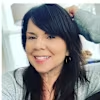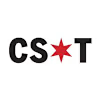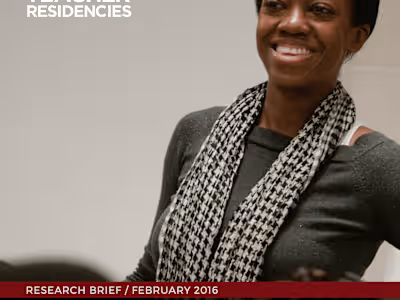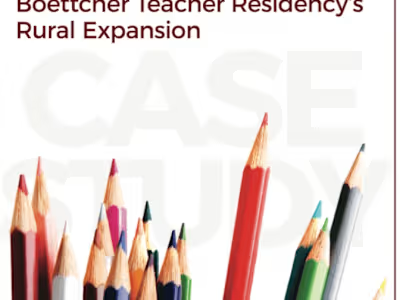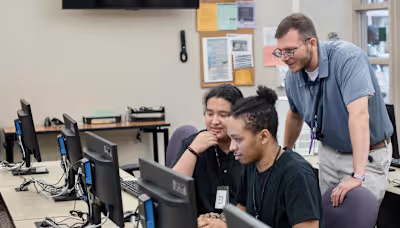Schools respond to mental health crisis by connecting students
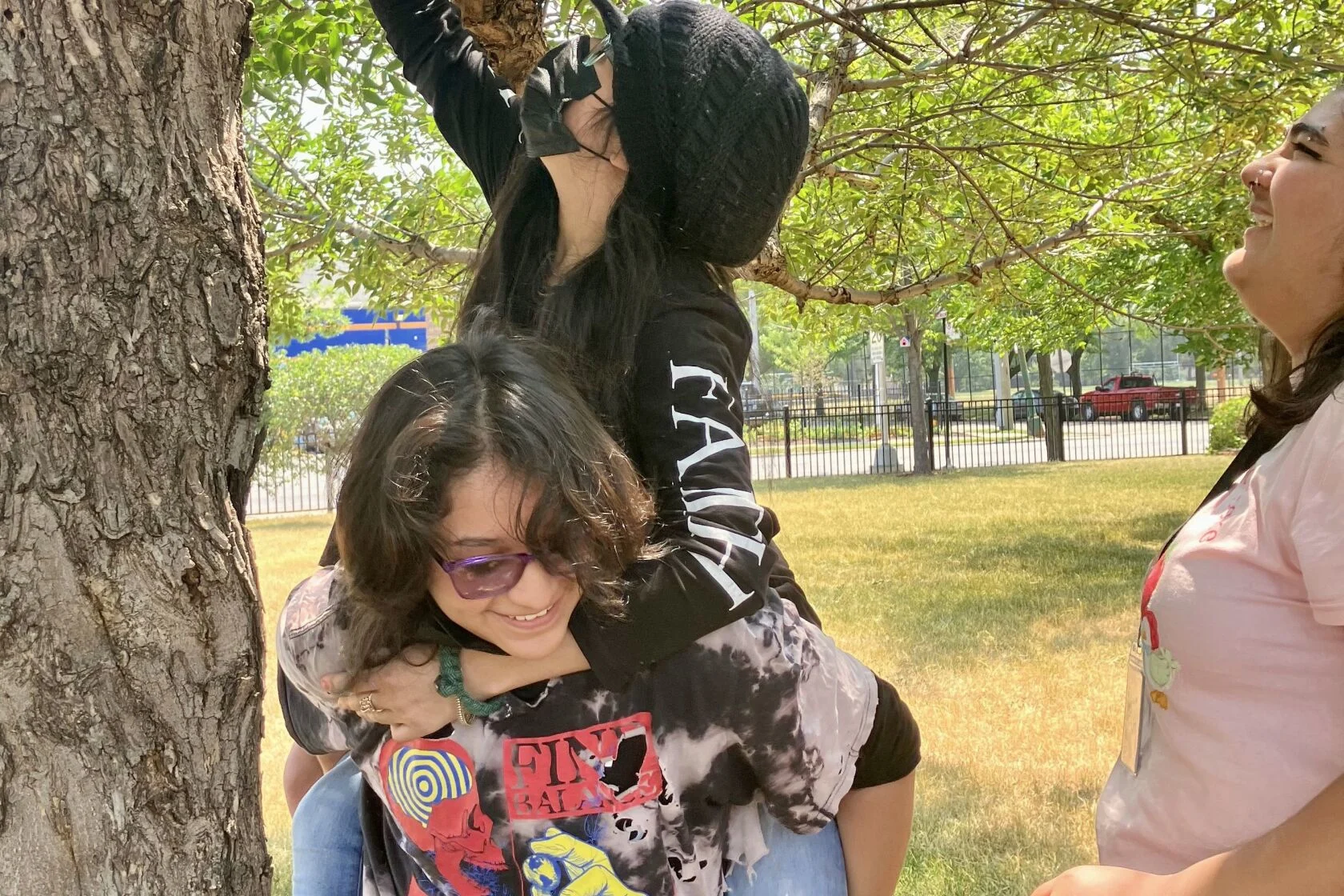
Kathleen Hayes
Two girls hang birdhouses made as part of a environmental club sponsored by the Brighton Park Neighborhood Council and funded by Chicago Public Schools. The club helps students build social connections many missed during the pandemic.
When Alex Balleza was a freshman at Mather High School during the 2019-2020 school year, she felt socially isolated.
She also was in a romantic relationship that she now calls “toxic.” Then she heard about a program at Mather called Working on Womanhood, which promised opportunities to meet other girls and talk about problems. Alex signed up.
Created by Youth Guidance by and for Black and Latina girls, WOW is a weekly in-school group to mentor and build skills in sixth- through 12th-grade girls via individual and group therapy.
“Those [therapy] meetings really opened my eyes. I was able to get out [of the relationship] and really am at peace now,” Belleza said.
This is one program helping address student mental health, which has reached a crisis point. The Centers for Disease Control and Prevention reported 44% of high school students responding to a 2021 survey said they persistently felt sad or hopeless during the last year.
An evaluation of WOW by the University of Chicago Education Lab found that school-based group counseling programs can significantly reduce post-traumatic stress disorder, anxiety and depression among Black and Latina girls.
This type of support is especially important for youths from neighborhoods with high rates of violence and trauma. Yet young people from underresourced neighborhoods often don’t have the same access as those from more affluent homes.
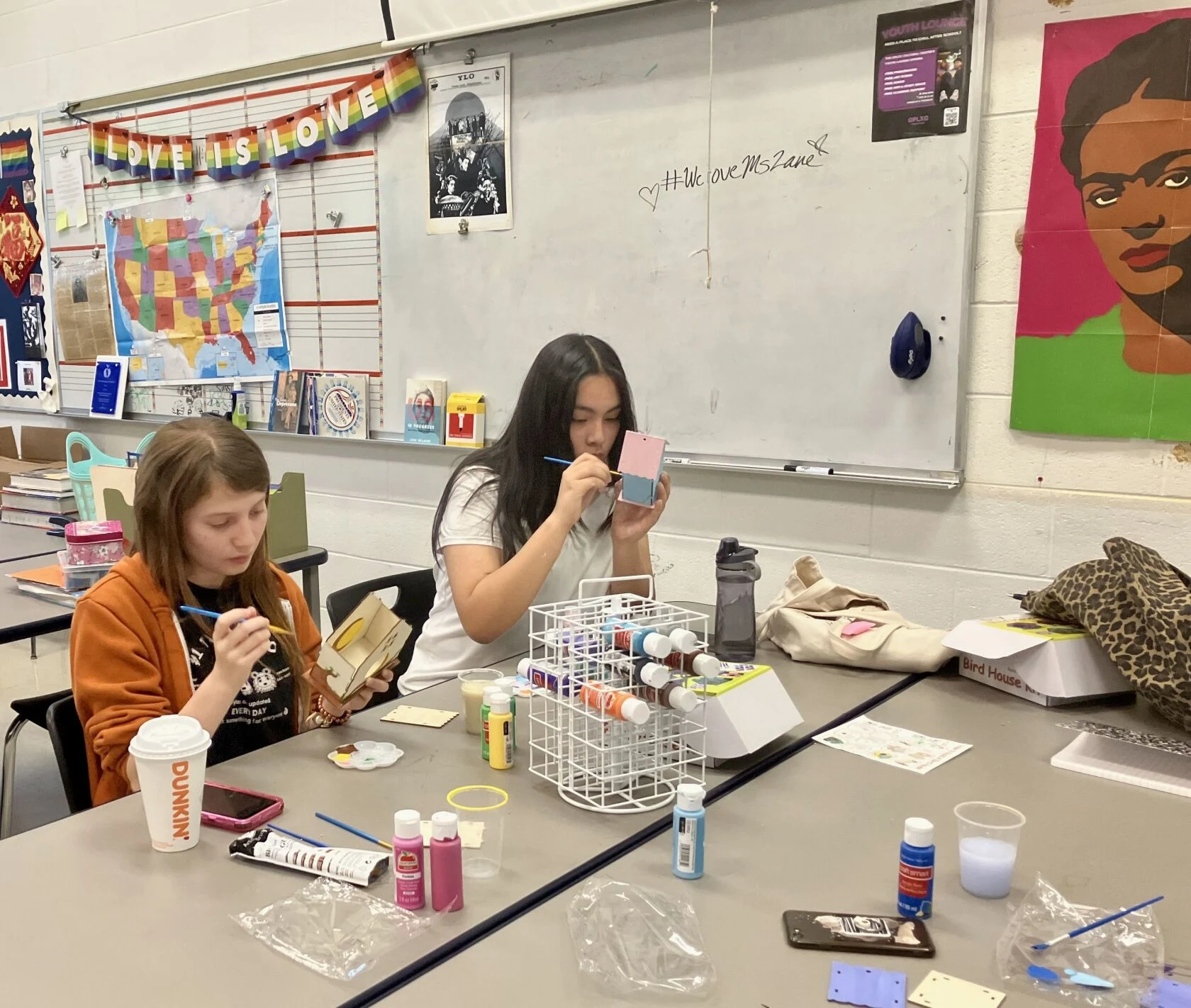
Kathleen Hayes
Programs that teach young people to create, spend time together and talk help with some of the mental health strain brought on by the pandemic.
Leslie Reyes, community schools manager for the Brighton Park Neighborhood Council, said family obligations and summer school often prevent area high school students from participating in the organization’s after-school and summer programs.
“[There are] a lot of responsibilities at home, like taking care of younger siblings while parents work due to lack of child care,” Reyes said.
Jodi Grant, executive director of Afterschool Alliance, said the COVID-19 pandemic exacerbated many families’ financial barriers to after-school programs. Program costs have increased, and as a result, so have enrollment fees.
“Prior to the pandemic … many were struggling but finding money to pay for these programs. But that became infinitely harder post-COVID,” Grant said.
Mayor Brandon Johnson has promised to expand sustainable community schools to provide academic, health and social support beyond the school day.
Supporting girls in trauma
A recent University of Chicago Education Lab survey of Chicago Public Schools found 38% of ninth- through 11th-grade girls exhibited signs of PTSD, double the rate experienced by military service members returning from Iraq and Afghanistan.
WOW works with the behavioral health team in 57 CPS middle and high schools to identify girls with high stress levels.
WOW senior counselor Keisha Mathew said the goal is reducing stress through coping skills and empowering the girls.
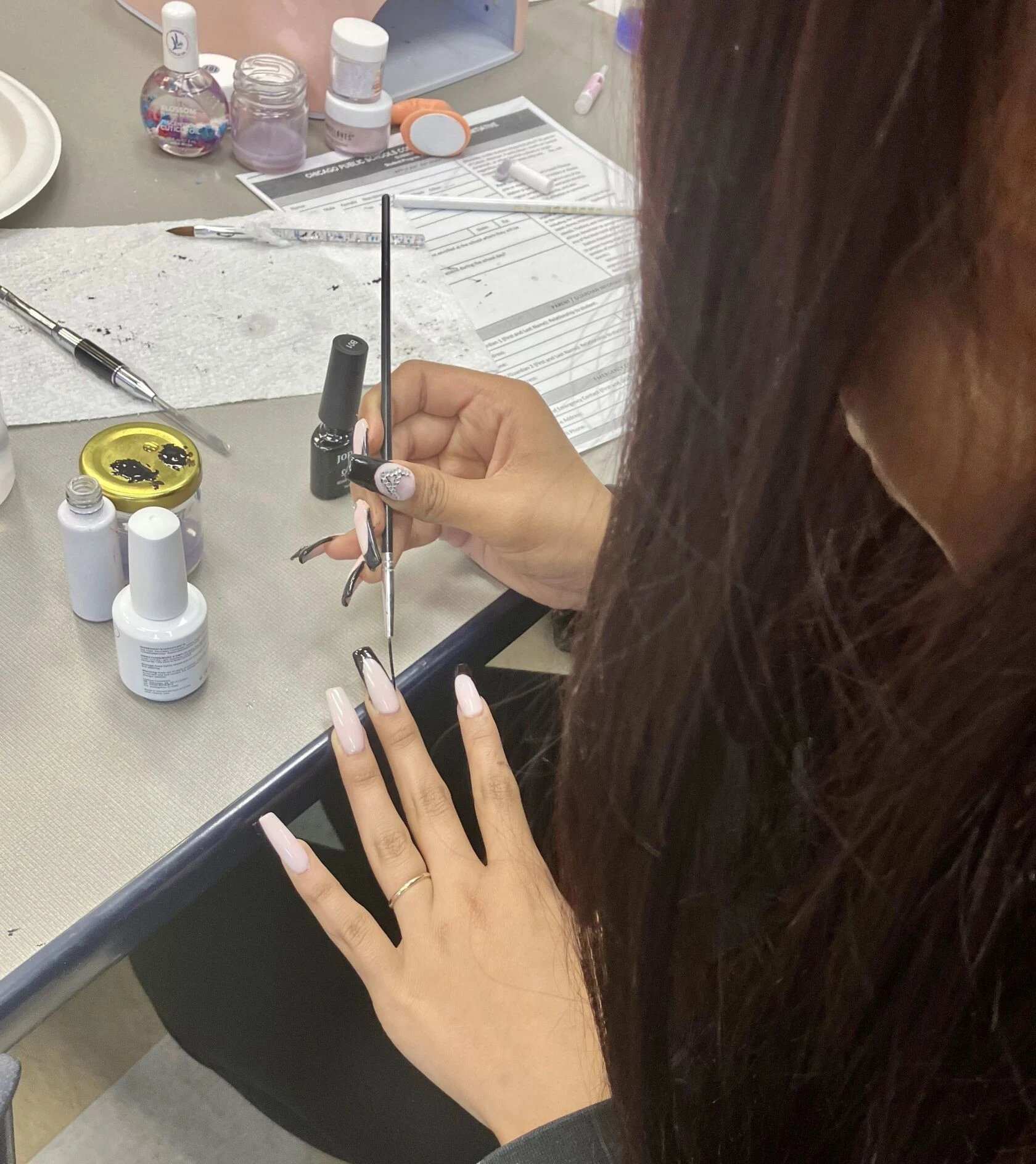
Kathleen Hayes
The nail tech clinic at Thomas Kelly College Prep high school in 2022 was one of several programs sponsored by the Brighton Park Neighborhood Council and funded by Chicago Public Schools.
“We always talk about what’s in their [coping] toolkit,” Mathew said. “Is it grounding? Is it talk therapy? Is it one-on-one or group? Is it art therapy?”
Nia Allen, a rising senior at Mather, credited WOW with helping her reintegrate into school once in-person learning resumed.
“I definitely came out of my shell and am way more confident than when I first joined,” she said.
Balleza, who will be a freshman this year at Northeastern Illinois University, said WOW has helped her reset her outlook on college.
“I’m nervous because I’m a first-generation [college student] ... but I’m excited. WOW really helped me know that other freshmen will be going through the same feelings as I am,” she said.
“It’s not lost on young people the importance of connecting with others,” Mathew said, wiping away tears.
Fostering social connections
In June, in a Thomas Kelly College Preparatory High School classroom in the Brighton Park neighborhood, Jasmin Feliciano used a tiny paintbrush to adorn a pink-and-blue birdhouse with green vines and multihued flowers.
“You should avoid white. Birds see it as dangerous,” explained her friend Rachel Tweddle.
The two built birdhouses as part of a two-week environmental club sponsored by the Brighton Park Neighborhood Council and funded by Chicago Public Schools. The nonprofit and CPS also sponsored Truffula Club, a tree-planting after-school program, and a nail tech clinic at Kelly, which they hope to replicate at Curie Metropolitan High School.
Feliciano, a rising junior at Kelly, and Tweddle, a rising senior, planted more than 50 trees on campus and in surrounding residential areas last year through Truffula Club. They also cleaned up garbage on campus.
They were excited to continue that work during the June environmental workshop.
“I’ve always wanted to make an environmental impact,” Tweddle said.
Susan Cisneros, an instructor for the Brighton Park council and a sponsor of the environmental club, said the hands-on activities show students small-scale environmental problems, which help them connect to global crises like climate change.
“It’s only when you pick up garbage that you begin to understand the impact,” she explained. “They now have a better awareness of their eco-footprint.”
The Curie and Kelly programs aim to provide experiences relevant to students’ civic and career interests. There’s also a social benefit: Students build personal connections with one another that otherwise might not have happened.
In June, Allerm Gutierrez, a rising Kelly sophomore who participated in the nail tech workshop, glanced around the room.
“Before I came here, I didn’t know these girls,” Allerm said. “They go to my school, some of them are in my grade, but I didn’t know them. But I do now.”
Kathleen Hayes is a reporter, writer and education policy expert.
Like this project
Posted Aug 5, 2023
Support groups and counseling help students overcome social and emotional struggles after COVID-19.
